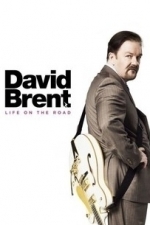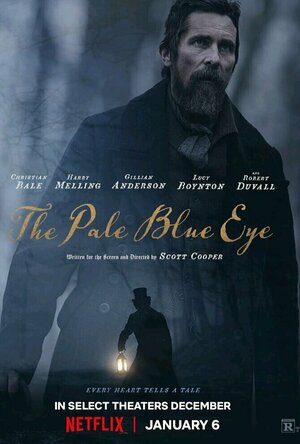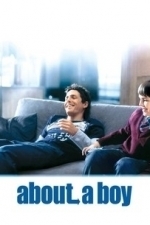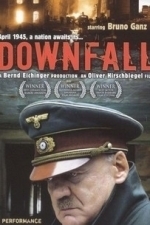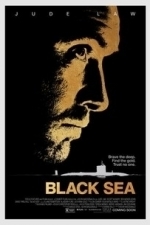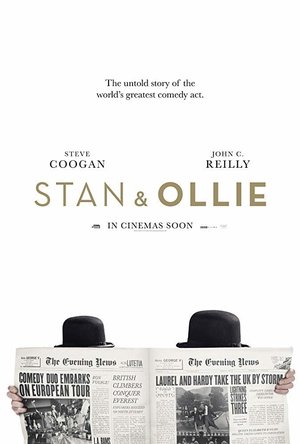Search
Lee (2222 KP) rated Saint Maud (2020) in Movies
Oct 6, 2020
Saint Maud is a psychological horror about a young nurse (Morfydd Clark) who, following ‘an incident’ while working for the NHS, something horrific that is alluded to in the opening scene, now finds herself working in palliative care.
Maud is a lonely, isolated, and very religious young woman, and as she sits in her sparse little bedsit, she prays to God in the hopes that he will guide her as she begins her new role. That new role sees her taking over as carer for Amanda (Jennifer Ehle), an ex-dancer whose body is now succumbing to terminal cancer. As Maud feeds, bathes and generally does everything for Amanda, her obsession with her faith and religion begins to send her into a downward spiral, becoming increasingly convinced that her personal mission from God is to save Amanda's soul. Amanda’s lifestyle choices and love-life are often at odds with Maud’s beliefs, eventually resulting in tensions between them.
'In my head, she's very much this person who has felt really alienated her entire life and has always found it really difficult to connect with other people,' explains British director Rose Glass about the lead character of her feature-length debut. Morfydd Clark fills that role brilliantly, with her calm and innocent voice narrating much of the film through her prayers, and we experience her failed attempts at connecting with others while on a rather heavy and eventful night out on the town. An ominous score also helps to set the tone, along with a rather gloomy colour palette, and there is a general feeling of dread throughout.
Aside from that, it’s fair to say that Saint Maud really didn’t work for me at all. I was fully invested in the character of Maud, how faith was shaping her, and how her relationship with Amanda was affected. But two thirds into this slow-burn character study of a young woman essentially going through a breakdown, I was bored and desperate for something to happen. Considering the runtime is only 84 minutes long, that’s not good.
A last-minute burst of chaos and horror provided a glimmer of hope but was very short-lived. And an attempt to deliver powerfully, memorable imagery only resulted in laughs from my cinema audience the likes of which I haven’t experienced since the ending of Hereditary.
Maud is a lonely, isolated, and very religious young woman, and as she sits in her sparse little bedsit, she prays to God in the hopes that he will guide her as she begins her new role. That new role sees her taking over as carer for Amanda (Jennifer Ehle), an ex-dancer whose body is now succumbing to terminal cancer. As Maud feeds, bathes and generally does everything for Amanda, her obsession with her faith and religion begins to send her into a downward spiral, becoming increasingly convinced that her personal mission from God is to save Amanda's soul. Amanda’s lifestyle choices and love-life are often at odds with Maud’s beliefs, eventually resulting in tensions between them.
'In my head, she's very much this person who has felt really alienated her entire life and has always found it really difficult to connect with other people,' explains British director Rose Glass about the lead character of her feature-length debut. Morfydd Clark fills that role brilliantly, with her calm and innocent voice narrating much of the film through her prayers, and we experience her failed attempts at connecting with others while on a rather heavy and eventful night out on the town. An ominous score also helps to set the tone, along with a rather gloomy colour palette, and there is a general feeling of dread throughout.
Aside from that, it’s fair to say that Saint Maud really didn’t work for me at all. I was fully invested in the character of Maud, how faith was shaping her, and how her relationship with Amanda was affected. But two thirds into this slow-burn character study of a young woman essentially going through a breakdown, I was bored and desperate for something to happen. Considering the runtime is only 84 minutes long, that’s not good.
A last-minute burst of chaos and horror provided a glimmer of hope but was very short-lived. And an attempt to deliver powerfully, memorable imagery only resulted in laughs from my cinema audience the likes of which I haven’t experienced since the ending of Hereditary.
Bob Mann (459 KP) rated David Brent: Life on the Road (2017) in Movies
Sep 29, 2021
A squirm-athon from beginning to end.
“Life on the Road” is a mockumentary sequel to the classic British version of the TV comedy “The Office” (obviously later remade for the US market and featuring Steve Carell). Ricky Gervais played the ego-centric David Brent, a monster of a character who exercised what little control he had in his managerial role at a Slough paper company.
Here in “Life on the Road” we join Brent 15 years later where he has taken a rung or two down the career ladder and is working as a sales rep for Lavachem, a sanitary goods manufacturer, also based in Slough.
But Brent still harbours a dream of making it big in the rock world with his middle-of-the-road band called ‘Foregone Conclusion (2)’. Gathering around him his ethnic rapper ‘friend’ Dom Johnson (Doc Brown) and a band of session musicians (who can’t stand him), Brent cashes in “several pensions” to fund a tour of the venues of Berkshire… or at least, those that will give stage time over to a “shite band”. As the tour delivers predictably diminishing returns, and no record-company interest (at least, not in him) Brent is forced to face his inner demons and some uncomfortable truths.
Bringing TV comedy characters to screen is fraught with difficulty, and few have successfully done it. Even legends like Morecambe and Wise struggled with a series of lacklustre films. Perhaps in recent times Steve Coogan’s Alan Partridge has come closest with “Alan Partridge – Alpha Papa” and indeed there are a lot of similarities visible between Partridge and Brent: both have extreme ego issues and self-centredness. But there are significant differences as well, for while Partridge is just an irritatingly loud and obnoxious minor-celebrity Brent – as this film makes much clearer – has real mental illness.
Brent - the sun shines out of his earhole.
Brent – the sun shines out of his earhole.
Is this therefore a comedy at all? Well, yes, but in a very black way. There are certainly moments of excellent humour, with the tattooing scene being a high-point. But the result of watching Brent’s progressive decline, with his nervous laugh as a constant ‘fingernails on chalk board’ reminder of his insecurity, results in a level of audience squirming that is palpable. Everything he does is perverse, from describing in excruciating detail every song before singing it, to spending his money on multiple hotel rooms when every gig is within the County of Berkshire.
As a black comedy its important that it doesn’t outstay its welcome, and at 96 minutes it doesn’t. However, the film lacks the courage of its own dark convictions, and unnecessarily switches tack in the last reel to provide a degree of redemption for Brent. Whilst ‘sweet’, it is also implausible given what’s happened before and I would have suspected the interference of the director in lightening the mood of the writer’s original intent. However, as Gervais is both writer and director, there is no such excuse. That’s a shame.
So, in summary, an uncomfortable watch that aligns appropriately with the high squirm factor of the original TV show. Prepare to laugh, but feel a bit guilty in doing so.
Here in “Life on the Road” we join Brent 15 years later where he has taken a rung or two down the career ladder and is working as a sales rep for Lavachem, a sanitary goods manufacturer, also based in Slough.
But Brent still harbours a dream of making it big in the rock world with his middle-of-the-road band called ‘Foregone Conclusion (2)’. Gathering around him his ethnic rapper ‘friend’ Dom Johnson (Doc Brown) and a band of session musicians (who can’t stand him), Brent cashes in “several pensions” to fund a tour of the venues of Berkshire… or at least, those that will give stage time over to a “shite band”. As the tour delivers predictably diminishing returns, and no record-company interest (at least, not in him) Brent is forced to face his inner demons and some uncomfortable truths.
Bringing TV comedy characters to screen is fraught with difficulty, and few have successfully done it. Even legends like Morecambe and Wise struggled with a series of lacklustre films. Perhaps in recent times Steve Coogan’s Alan Partridge has come closest with “Alan Partridge – Alpha Papa” and indeed there are a lot of similarities visible between Partridge and Brent: both have extreme ego issues and self-centredness. But there are significant differences as well, for while Partridge is just an irritatingly loud and obnoxious minor-celebrity Brent – as this film makes much clearer – has real mental illness.
Brent - the sun shines out of his earhole.
Brent – the sun shines out of his earhole.
Is this therefore a comedy at all? Well, yes, but in a very black way. There are certainly moments of excellent humour, with the tattooing scene being a high-point. But the result of watching Brent’s progressive decline, with his nervous laugh as a constant ‘fingernails on chalk board’ reminder of his insecurity, results in a level of audience squirming that is palpable. Everything he does is perverse, from describing in excruciating detail every song before singing it, to spending his money on multiple hotel rooms when every gig is within the County of Berkshire.
As a black comedy its important that it doesn’t outstay its welcome, and at 96 minutes it doesn’t. However, the film lacks the courage of its own dark convictions, and unnecessarily switches tack in the last reel to provide a degree of redemption for Brent. Whilst ‘sweet’, it is also implausible given what’s happened before and I would have suspected the interference of the director in lightening the mood of the writer’s original intent. However, as Gervais is both writer and director, there is no such excuse. That’s a shame.
So, in summary, an uncomfortable watch that aligns appropriately with the high squirm factor of the original TV show. Prepare to laugh, but feel a bit guilty in doing so.
BankofMarquis (1832 KP) rated The Pale Blue Eye (2022) in Movies
Jan 15, 2023
Haunting and Intriguing
An eerie, gothic murder mystery pairing an ingenious Detective with a young Edgar Allan Poe is now streaming on Netflix and is the perfect way to shut out the January winds and hibernate on your couch and get involved in the mystery while sitting in front of a warm, roaring fire (or heat lamp) and your favorite warm (possibly adult) beverage).
Written for the screen (from book by Louis Bayard) and Directed by Scott Cooper (OUT OF THE FURNACE), THE PALE BLUE EYE stars the always good Christian Bale (probably my favorite actor working today) as Civilian Detective Augustus Landor who is summoned to 1830’s West Point Military Academy to solve a murder. He is aided by a young cadet played by Harry Melling (Dudley Dursley in the HARRY POTTER FILMS) who turns out to be none other than Edgar Allan Poe.
Cooper films this movie in shadow and dark brown and yellow tones, giving the 1830’s setting a certain dream-like, dreary quality that underscores the gruesome goings-on happening behind the scenes at the fledgling United States Military Academy. These types of films - and the mood that is permeated throughout - can often be slow slogs and often times bogs down under the weight of it’s own pretentiousness - but Cooper keeps the action moving forward (though at a deliberate pace) often-times mimicking the piecing together of the circumstances that Bale’s character is doing.
Thank goodness Cooper had the good sense to reunite with his OUT OF THE FURNACE star and cast Bale in the lead role. The character of Detective Augustus Landor is dark and brooding - himself still working through the emotions of a tragedy from his past. But he is also thoughtful and deliberate in his detective work and Bale handles these moods…and the pacing of the film…like the pro that he is. If for no other reason, check out THE PALE BLUE EYE (a reference to Poe’s TELL TALE HEART) for Bale’s performance at the center of things.
Fortunately, Bale is aided in this film by a strong ensemble of (mostly) British actors from Toby Jones to Gillian Anderson to Simon McBurney and Timothy Spall - they all bring their considerable talents to lesser roles as suspects and/or witnesses in this “whodunnit”. Cooper also trots out good ol’ (and I do mean old) Robert Duvall for a “blink or you’ll miss it” cameo. The casting works well for this gothic murder mystery.
And then there is Melling as Edgar Allan Poe. He plays Poe as you might expect one to play a young Edgar Allan Poe - as an “odd duck” who is fascinated by macabre scenarios (which would be later found in his storytelling), but Melling gives him an intelligence and gentleness of soul that really works in this case.
The Cinematography of this movie is bleak and dark - as befits a gothic murder mystery - and the pacing is not fast in any sense of the word, but if you click into this world, you’ll be rewarding by an interesting murder mystery that resolves itself in a surprising - and satisfactory - way.
Letter Grade: B+
8 stars (out of 10) and you can take that to the Bank(ofMarquis)
Written for the screen (from book by Louis Bayard) and Directed by Scott Cooper (OUT OF THE FURNACE), THE PALE BLUE EYE stars the always good Christian Bale (probably my favorite actor working today) as Civilian Detective Augustus Landor who is summoned to 1830’s West Point Military Academy to solve a murder. He is aided by a young cadet played by Harry Melling (Dudley Dursley in the HARRY POTTER FILMS) who turns out to be none other than Edgar Allan Poe.
Cooper films this movie in shadow and dark brown and yellow tones, giving the 1830’s setting a certain dream-like, dreary quality that underscores the gruesome goings-on happening behind the scenes at the fledgling United States Military Academy. These types of films - and the mood that is permeated throughout - can often be slow slogs and often times bogs down under the weight of it’s own pretentiousness - but Cooper keeps the action moving forward (though at a deliberate pace) often-times mimicking the piecing together of the circumstances that Bale’s character is doing.
Thank goodness Cooper had the good sense to reunite with his OUT OF THE FURNACE star and cast Bale in the lead role. The character of Detective Augustus Landor is dark and brooding - himself still working through the emotions of a tragedy from his past. But he is also thoughtful and deliberate in his detective work and Bale handles these moods…and the pacing of the film…like the pro that he is. If for no other reason, check out THE PALE BLUE EYE (a reference to Poe’s TELL TALE HEART) for Bale’s performance at the center of things.
Fortunately, Bale is aided in this film by a strong ensemble of (mostly) British actors from Toby Jones to Gillian Anderson to Simon McBurney and Timothy Spall - they all bring their considerable talents to lesser roles as suspects and/or witnesses in this “whodunnit”. Cooper also trots out good ol’ (and I do mean old) Robert Duvall for a “blink or you’ll miss it” cameo. The casting works well for this gothic murder mystery.
And then there is Melling as Edgar Allan Poe. He plays Poe as you might expect one to play a young Edgar Allan Poe - as an “odd duck” who is fascinated by macabre scenarios (which would be later found in his storytelling), but Melling gives him an intelligence and gentleness of soul that really works in this case.
The Cinematography of this movie is bleak and dark - as befits a gothic murder mystery - and the pacing is not fast in any sense of the word, but if you click into this world, you’ll be rewarding by an interesting murder mystery that resolves itself in a surprising - and satisfactory - way.
Letter Grade: B+
8 stars (out of 10) and you can take that to the Bank(ofMarquis)
Darren (1599 KP) rated About a Boy (2002) in Movies
Jun 20, 2019
Story: About a Boy starts as we meet Will Freeman (Grant) who lives the perfect life in his head, no job because of his father’s royalties, no responsibilities and no relationship, he can jump from woman to woman and now he has learnt about single mums, he new target. Marcus (Hoult) is a young boy whose single mother is battling depression and when the two become unlikely friends.
As the friendship builds between Will and Marcus, the two learn valuable life lessons with Will finally learning the serious side to life, one he had coasted over through his life.
Thoughts on About a Boy
Characters – Will is the playboy bachelor who has gone from woman to woman never taking responsibility in anything in his life, at the age of 38 he isn’t getting any younger and wants to look to a new location to meet women, which finally gives him a chance to look at his own life errors and start to make something from life. Marcus is a bullied young boy, his mother is battling depression and he never fits in at school, he sees a male role model in Will and starts to becoming friends with Will where he can starts to learn how to be who he should be. This character is drawn up wonderfully because he doesn’t understand the problems his mother is going through, while he is aware there is a problem it reflects in his everyday life. Fiona is the mother of Marcus, she is battle depression in her life while trying her hardest to stay positive for Marcus, a battle she isn’t always winning. Rachel is the woman that shows Will a new meaning to life, only she is the one that could shatter his new look too.
Performances – Hugh Grant is easily one of the most British actors out there, he gives one of his best performances here that will make you like his bad character. This role could easily be a look at the person people believed he would be in real life. Nicholas Hoult gives one of the greatest breakthrough performances for a young star and by seeing just how far he has gone since this shows the early talent he showed. Toni Collette gives us a supporting performance that is just as difficult to watch because of her characters problems that it is an essential performance to see. Rachel Weisz is good in her supporting role, she doesn’t need to do too much with her character though.
Story – The story here plays out as a middle-aged man needing to grow up, a young boy who needs a male role model and understand that life isn’t going to be perfect no matter how much you want to believe it. The growing up side of the story is the one that we get to focus on the most and is everything you expect it to be. There is however a much deeper and stronger side to this story we see, that comes from seeing how young Marcus doesn’t completely understand his mother’s depression and just wants somebody to talk to, while finding his own way to fix her. Now this is important because the mental health issues are a bigger talking point now and showing it through the eyes of an innocent young boy shows how difficult it can be to talk about and deal with, with him never truly understanding what the problems are.
Comedy/Romance – This film did get me laughing a lot, this is usually hard for any comedy movie, this has so many clever visions on life through the shallow nature Will has. The romance is the backburner because it shows us just how Will is trying to find women, even if one does change his life.
Settings – The film is set in London, we get the see the home environment, which for the most part are empty, the social life and everyday life, nothing is new.
Scene of the Movie – Be a Godfather question?
That Moment That Annoyed Me – The generic bullies.
Final Thoughts – This is a brilliant comedy that gets everything right with the way the comedy is handled, we do get a big issue covered and is a film that people need to look back on and watch.
Overall: Must watch comedy.
https://moviesreview101.com/2019/03/26/about-a-boy-2002/
As the friendship builds between Will and Marcus, the two learn valuable life lessons with Will finally learning the serious side to life, one he had coasted over through his life.
Thoughts on About a Boy
Characters – Will is the playboy bachelor who has gone from woman to woman never taking responsibility in anything in his life, at the age of 38 he isn’t getting any younger and wants to look to a new location to meet women, which finally gives him a chance to look at his own life errors and start to make something from life. Marcus is a bullied young boy, his mother is battling depression and he never fits in at school, he sees a male role model in Will and starts to becoming friends with Will where he can starts to learn how to be who he should be. This character is drawn up wonderfully because he doesn’t understand the problems his mother is going through, while he is aware there is a problem it reflects in his everyday life. Fiona is the mother of Marcus, she is battle depression in her life while trying her hardest to stay positive for Marcus, a battle she isn’t always winning. Rachel is the woman that shows Will a new meaning to life, only she is the one that could shatter his new look too.
Performances – Hugh Grant is easily one of the most British actors out there, he gives one of his best performances here that will make you like his bad character. This role could easily be a look at the person people believed he would be in real life. Nicholas Hoult gives one of the greatest breakthrough performances for a young star and by seeing just how far he has gone since this shows the early talent he showed. Toni Collette gives us a supporting performance that is just as difficult to watch because of her characters problems that it is an essential performance to see. Rachel Weisz is good in her supporting role, she doesn’t need to do too much with her character though.
Story – The story here plays out as a middle-aged man needing to grow up, a young boy who needs a male role model and understand that life isn’t going to be perfect no matter how much you want to believe it. The growing up side of the story is the one that we get to focus on the most and is everything you expect it to be. There is however a much deeper and stronger side to this story we see, that comes from seeing how young Marcus doesn’t completely understand his mother’s depression and just wants somebody to talk to, while finding his own way to fix her. Now this is important because the mental health issues are a bigger talking point now and showing it through the eyes of an innocent young boy shows how difficult it can be to talk about and deal with, with him never truly understanding what the problems are.
Comedy/Romance – This film did get me laughing a lot, this is usually hard for any comedy movie, this has so many clever visions on life through the shallow nature Will has. The romance is the backburner because it shows us just how Will is trying to find women, even if one does change his life.
Settings – The film is set in London, we get the see the home environment, which for the most part are empty, the social life and everyday life, nothing is new.
Scene of the Movie – Be a Godfather question?
That Moment That Annoyed Me – The generic bullies.
Final Thoughts – This is a brilliant comedy that gets everything right with the way the comedy is handled, we do get a big issue covered and is a film that people need to look back on and watch.
Overall: Must watch comedy.
https://moviesreview101.com/2019/03/26/about-a-boy-2002/
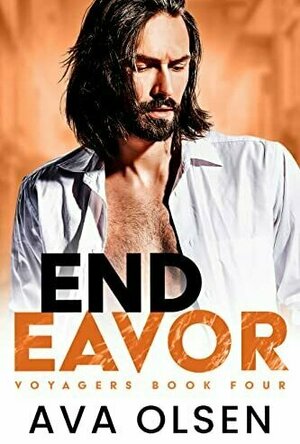
Endeavor (Voyagers #4)
Book
Jared: Challenging the status quo in Hollywood doesn’t make me the most popular director in...
Contemporary MMM Romance
RəX Regent (349 KP) rated Downfall (Der Untergang) (2004) in Movies
Feb 19, 2019
The true story of the last days of NAZI Germany, focusing on Hitler and his cohorts as they sought refuge on his Berlin Bunker and is chronicled here with such honesty.
Told in a straight forward manner, we are given a portrait of not only Adolf Hitler himself, played perfectly by Bruno Ganz, who manages to humanize him without ever apologising for his heinous acts, but also those close to him. Shown through the young eyes of his final secretary, Traudl Junge (Alexandra Maria Lara), we are given a picture of what The Third Reich was to those who believed in it as well as what it had become for those who would suffer at it bloody hands.
Directed by Hirschbiegel to put us, the audience in the anterooms with these monsters, we are placed into a complex environment, edgy, atmospheric and most of all, real, as we witness noble acts of patriotism, conscience and pure, despicable horror, none less so that Magda Geobells, with the full consent of her husband, Joseph, first drugging, then murdering their six children as they slept, rather than “let them live in a world without national socialism.”
The only redeeming factors were their eventual suicides and in terms of the film, their first rate performances throughout this harrowing scene. Corinna Harfouch, who portrays Magda manages to portray this evil woman yet convey the emotion which was subdued deep beneath the surface. No small feat to allow such a fleeting glimpse of humanity during such and inhuman act.
But the same must be said Bruno Ganz, who manages to portray Hitler with such humanity; whilst showing us the true nature of his monstrosities, highlighting that the REAL monsters live among us and can seduce us at any time, any where, especially when we are vulnerable.
During one of the film’s early scenes, Hitler and Albert Speer (Heino Ferch), his Armaments Minister, discussing his vision for The Third Reich as he looks over a model of the new Germany which would be built after he won the war, a Germany without department stores, instead focusing on art, literature and culture.
Surely a noble goal, but as we all know, this cultural hub would have been built at an unacceptable cost, mainly with the blood of those who Hitler and his cohorts deemed to be inferior.
This is one of many clever methods used to convey a fair portrait of Hitler and The Third Reich. To demonstrate how bad they were, you first have to show impartiality, pointing out the good in what they do, play devil’s advocate as it were. Because whether we like it or not, evil motives are often built upon decent goals.
But as this film demonstrates, as Hitler shows his destine for anyone, even his own people, who will not give their lives for HIS vision of Germany, his Third Reich was being eaten away by a cancer of his own making, a Germany rotting from the very top.
Downfall is without a doubt one of the best World War 2 films which I have ever seen, delivering a compelling and immersive look behind the scenes of one of the most important defeats in modern history.
But being British and having to follow this with subtitles, which was great as watching this in its native German only adds to the experience, it can be a bit difficult to keep up with every plot machination, as we spend two and half hours reading about troop deployments, tactics and the philosophy of the Third Reich as we are presented with such atmospheric work, but if you can keep up with but the text and visuals, this is one hell of an education for those who do not know and an immersive masterpiece for those who follow WW2 history.
Told in a straight forward manner, we are given a portrait of not only Adolf Hitler himself, played perfectly by Bruno Ganz, who manages to humanize him without ever apologising for his heinous acts, but also those close to him. Shown through the young eyes of his final secretary, Traudl Junge (Alexandra Maria Lara), we are given a picture of what The Third Reich was to those who believed in it as well as what it had become for those who would suffer at it bloody hands.
Directed by Hirschbiegel to put us, the audience in the anterooms with these monsters, we are placed into a complex environment, edgy, atmospheric and most of all, real, as we witness noble acts of patriotism, conscience and pure, despicable horror, none less so that Magda Geobells, with the full consent of her husband, Joseph, first drugging, then murdering their six children as they slept, rather than “let them live in a world without national socialism.”
The only redeeming factors were their eventual suicides and in terms of the film, their first rate performances throughout this harrowing scene. Corinna Harfouch, who portrays Magda manages to portray this evil woman yet convey the emotion which was subdued deep beneath the surface. No small feat to allow such a fleeting glimpse of humanity during such and inhuman act.
But the same must be said Bruno Ganz, who manages to portray Hitler with such humanity; whilst showing us the true nature of his monstrosities, highlighting that the REAL monsters live among us and can seduce us at any time, any where, especially when we are vulnerable.
During one of the film’s early scenes, Hitler and Albert Speer (Heino Ferch), his Armaments Minister, discussing his vision for The Third Reich as he looks over a model of the new Germany which would be built after he won the war, a Germany without department stores, instead focusing on art, literature and culture.
Surely a noble goal, but as we all know, this cultural hub would have been built at an unacceptable cost, mainly with the blood of those who Hitler and his cohorts deemed to be inferior.
This is one of many clever methods used to convey a fair portrait of Hitler and The Third Reich. To demonstrate how bad they were, you first have to show impartiality, pointing out the good in what they do, play devil’s advocate as it were. Because whether we like it or not, evil motives are often built upon decent goals.
But as this film demonstrates, as Hitler shows his destine for anyone, even his own people, who will not give their lives for HIS vision of Germany, his Third Reich was being eaten away by a cancer of his own making, a Germany rotting from the very top.
Downfall is without a doubt one of the best World War 2 films which I have ever seen, delivering a compelling and immersive look behind the scenes of one of the most important defeats in modern history.
But being British and having to follow this with subtitles, which was great as watching this in its native German only adds to the experience, it can be a bit difficult to keep up with every plot machination, as we spend two and half hours reading about troop deployments, tactics and the philosophy of the Third Reich as we are presented with such atmospheric work, but if you can keep up with but the text and visuals, this is one hell of an education for those who do not know and an immersive masterpiece for those who follow WW2 history.
Gareth von Kallenbach (980 KP) rated Black Sea (2015) in Movies
Aug 6, 2019
Jude Law stars as Robinson, a former submarine captain made redundant after a long career with an underwater salvage company. Left without a pension, and blaming the company for his failed marriage, he learns from a former co-worker that a vast sum of Nazi gold is lying in wait aboard a sunken German U-boat at the bottom of the Black Sea. Upon securing financing and a submarine that has most definitely seen better days, he pulls together a crew of both British and Russian sailors, assuring every man that an equal share of the loot is to be had. Tensions among the crew soon arise and as one character chillingly questions, “What happens when one of them starts to figure out that their share gets bigger, when there is less people to share it with?”
A few too many easy coincidences drive this plot along, but if you’re willing to suspend just a bit of disbelief, there’s a great tale of paranoia, claustrophobia, betrayal and greed beneath the surface. Even through Jude Law’s dodgy Scottish accent, every performance (particularly newcomer Bobby Schofield as the inexperienced Tobin) is top-notch as both he and the supporting cast provide true believability to the disregard and distrust the two groups of men come to have for each other. Between Black Sea and his unexpectedly good turn in Dom Hemingway last year, Jude Law is firmly back on my radar, as he seems to be following in Matthew McConaughey’s footsteps by taking darker, more complex and challenging roles at this point in his career. From playing a father-figure for a boy frightened of what the future holds, to a man possessed of the determination, no matter what the cost, to return home rich, Law hits every note right and is more than capable of leading a cast this talented.
My only substantial complaint is the ending. On leaving the theater, it seemed one of the better solutions to the potential corner the filmmakers were painting themselves into, though the longer its sits, the more I think a film of this unrelenting intensity deserves an ending with some poignancy. Admittedly, I would have found something bleaker to be more satisfying. The easy route out taken in the last five minutes by director Kevin Macdonald and writer Dennis Kelly are a bit of a let-down when compared with the pulse pounding hour and forty-five minutes that precedes it, and for me it will only detract from Black Sea’s memorability.
With the mention of a submarine drama, it is almost inevitable that comparisons to Das Boot will be drawn. For the purposes of reviewing Black Sea however, I have been unable to do so as my only viewing of it was about a decade ago, when I very foolishly had the ambition to see not only the uncut 6-hour mini-series version that was put together for German television, but to do so in a single sitting. I was successful, but only in terms of completing the task. I know it was great and that it is above equal in the genre of submarine films, but at this point I’d be hard pressed to recall even a few minutes of it. It would seem, in this case, that Black Sea got a fair shake to be judged on its own merits (and that I now have a German epic to revisit, albeit in the slightly more truncated director’s cut form this time).
A few nitpicky complaints aside, and in direct contradiction with my take on the abysmally poor Blackhat from the other week, this is a fine example of a well-made, wall-to-wall suspense-filled thriller, and the film I wish I had started the year off with. Released in early December in the UK, where it has received generally positive reviews, it’s unfortunate that it has landed stateside in the January/February season of no-hopes.
A few too many easy coincidences drive this plot along, but if you’re willing to suspend just a bit of disbelief, there’s a great tale of paranoia, claustrophobia, betrayal and greed beneath the surface. Even through Jude Law’s dodgy Scottish accent, every performance (particularly newcomer Bobby Schofield as the inexperienced Tobin) is top-notch as both he and the supporting cast provide true believability to the disregard and distrust the two groups of men come to have for each other. Between Black Sea and his unexpectedly good turn in Dom Hemingway last year, Jude Law is firmly back on my radar, as he seems to be following in Matthew McConaughey’s footsteps by taking darker, more complex and challenging roles at this point in his career. From playing a father-figure for a boy frightened of what the future holds, to a man possessed of the determination, no matter what the cost, to return home rich, Law hits every note right and is more than capable of leading a cast this talented.
My only substantial complaint is the ending. On leaving the theater, it seemed one of the better solutions to the potential corner the filmmakers were painting themselves into, though the longer its sits, the more I think a film of this unrelenting intensity deserves an ending with some poignancy. Admittedly, I would have found something bleaker to be more satisfying. The easy route out taken in the last five minutes by director Kevin Macdonald and writer Dennis Kelly are a bit of a let-down when compared with the pulse pounding hour and forty-five minutes that precedes it, and for me it will only detract from Black Sea’s memorability.
With the mention of a submarine drama, it is almost inevitable that comparisons to Das Boot will be drawn. For the purposes of reviewing Black Sea however, I have been unable to do so as my only viewing of it was about a decade ago, when I very foolishly had the ambition to see not only the uncut 6-hour mini-series version that was put together for German television, but to do so in a single sitting. I was successful, but only in terms of completing the task. I know it was great and that it is above equal in the genre of submarine films, but at this point I’d be hard pressed to recall even a few minutes of it. It would seem, in this case, that Black Sea got a fair shake to be judged on its own merits (and that I now have a German epic to revisit, albeit in the slightly more truncated director’s cut form this time).
A few nitpicky complaints aside, and in direct contradiction with my take on the abysmally poor Blackhat from the other week, this is a fine example of a well-made, wall-to-wall suspense-filled thriller, and the film I wish I had started the year off with. Released in early December in the UK, where it has received generally positive reviews, it’s unfortunate that it has landed stateside in the January/February season of no-hopes.
Kirk Bage (1775 KP) rated Stan & Ollie (2018) in Movies
Jan 28, 2021
My relationship with Laurel & Hardy is a tentative one. I do enjoy their short films, full of ingenuity and genuinely funny moments. But, they’d be down the list a bit for me on the greatest black and white comedy stars – Chaplin, Keaton, Lloyd, then the Marx Brothers maybe, then the slapstick duo next, maybe. It’s not that I don’t think they are great! They are, they definitely are. I just can’t sit down and take to much of them at once. Maybe because their schtick is very stagey, vaudevillian even, rather than cinematic. And that is because they were primary stage actors and clowns. Not necessarily in that order.
So, my anticipation of a movie about them in 2018 was not huge. I was happy to wait, and it was consigned deep down the watchlist for a while. Until one Sunday evening in October, when it suddenly felt like exactly what I wanted to see that day – a nice, calm biopic that probably had a few laughs and a soppy ending. And that is pretty much what this is. Except that it also has two very very impressive performances from the eponymous leads, the consumately talented John C. Reilly and Steve Coogan.
When I say impressive I mean that at times it feels like you are magically watching the real Oliver Hardy and Stan Laurel. So detailed and well observed are their characterisations that nothing whatsoever (other than maybe the makeup on Reilly’s double chin) strikes you as false. Which helps you invest in their story entirely; told in professional if unspectacular style by Jon S. Baird, who demonstrates an understanding of the people, if not a full understanding of how to make a scene truly fly.
The story here is not a full biopic, but rather a snapshot of the end of their careers, when, amazingly, they embarked on a tour of UK theatres in an attempt to keep working once their film career had lost its shine and popularity. What we see are two older men, once treated as superstars, who are now brought down to earth by all things fading, including their youth. They are bitter and argumentative with each other, and their long suffering wives (played satisfyingly by Shirley Henderson and Nina Arianda). Long stewed resentments come to the surface and the smiles of the clowns are seen at their lowest ebb as things begin to fall apart.
What rings true are the observations of a love / hate friendship that has lasted a full lifetime, and how that affects a working relationship and a public legacy. Jeff Pope, who also worked with Coogan on Philomena, gives us a stoic but often deeply meaningful screenplay here, that isn’t bothered by showing off, in favour of colouring the relationship accurately, which is commendably, and feels quite anti-Hollywood and a bit more British.
The physical gags and set-pieces are also beautifully staged, and look gorgeous, evoking the period superbly. My face was almost permanently smiling, although I can’t remember laughing out loud once. And that is what this film feels like, ultimately – a nice, gentle, Sunday afternoon drive into the past. Your grandparents will love it! Personally, I felt it was fine and dandy, but lacked a spark or two to make it properly come to life.
Watch this if you enjoy great acting that doesn’t need to wave its arms around to get attention. Both Reilly and Coogan are extraordinary! Interestingly, the American was nominated for a Golden Globe over there, and the Brit was nominated for a Bafta over here. Neither won, but they were never going to, as this production is almost embarrassed to announce itself as being good. It is good. Just not amazing. Give it a go when a nice cosy, sleepy mood takes you one day.
So, my anticipation of a movie about them in 2018 was not huge. I was happy to wait, and it was consigned deep down the watchlist for a while. Until one Sunday evening in October, when it suddenly felt like exactly what I wanted to see that day – a nice, calm biopic that probably had a few laughs and a soppy ending. And that is pretty much what this is. Except that it also has two very very impressive performances from the eponymous leads, the consumately talented John C. Reilly and Steve Coogan.
When I say impressive I mean that at times it feels like you are magically watching the real Oliver Hardy and Stan Laurel. So detailed and well observed are their characterisations that nothing whatsoever (other than maybe the makeup on Reilly’s double chin) strikes you as false. Which helps you invest in their story entirely; told in professional if unspectacular style by Jon S. Baird, who demonstrates an understanding of the people, if not a full understanding of how to make a scene truly fly.
The story here is not a full biopic, but rather a snapshot of the end of their careers, when, amazingly, they embarked on a tour of UK theatres in an attempt to keep working once their film career had lost its shine and popularity. What we see are two older men, once treated as superstars, who are now brought down to earth by all things fading, including their youth. They are bitter and argumentative with each other, and their long suffering wives (played satisfyingly by Shirley Henderson and Nina Arianda). Long stewed resentments come to the surface and the smiles of the clowns are seen at their lowest ebb as things begin to fall apart.
What rings true are the observations of a love / hate friendship that has lasted a full lifetime, and how that affects a working relationship and a public legacy. Jeff Pope, who also worked with Coogan on Philomena, gives us a stoic but often deeply meaningful screenplay here, that isn’t bothered by showing off, in favour of colouring the relationship accurately, which is commendably, and feels quite anti-Hollywood and a bit more British.
The physical gags and set-pieces are also beautifully staged, and look gorgeous, evoking the period superbly. My face was almost permanently smiling, although I can’t remember laughing out loud once. And that is what this film feels like, ultimately – a nice, gentle, Sunday afternoon drive into the past. Your grandparents will love it! Personally, I felt it was fine and dandy, but lacked a spark or two to make it properly come to life.
Watch this if you enjoy great acting that doesn’t need to wave its arms around to get attention. Both Reilly and Coogan are extraordinary! Interestingly, the American was nominated for a Golden Globe over there, and the Brit was nominated for a Bafta over here. Neither won, but they were never going to, as this production is almost embarrassed to announce itself as being good. It is good. Just not amazing. Give it a go when a nice cosy, sleepy mood takes you one day.
Bob Mann (459 KP) rated People Just Do Nothing: Big in Japan (2021) in Movies
Aug 20, 2021
Good jokes, most of which land (1 more)
Enough David Brent/Partridge moments to make you cringe
As a PJDN virgin, I still laughed a lot!
It’s brave then that such a relatively niche UK TV show should have a go at ‘jumping the shark’ onto the big screen. Would fans like it? And, just as importantly, would newcomers to the characters, like me, be able to enjoy the film as a standalone entity? The answer to the last question is a qualified “yes”.
Positives:
- It well-surpasses the “6 laugh test” for a comedy. There are some scenes that I found extremely funny, with others that rated highly for me on the David Brent / Alan Partridge scale of cringiness.
- I’ve seen comment that the story is "silly" and “unbelievable”. But having experienced the crazy clash between English and Japanese culture first hand, it strikes me as very true to form! The way in which the Japanese music execs try to stylise the ground as a ‘boy band’ (“Bang Boys”!), which Grindah greedily goes along with, is a nice satire on the music industry asserting its brand over musician’s art.
- A subplot of a love story beween the inept Steves and the cute Japanese translator Ishika (Ayumi Itô) is nicely done and strangely touching.
- The good news is that you don’t need any previous experience of the characters to get fun out of the movie: you can jump right in. That being said though, I’m sure fans of the series will get more out of this than I did.
Negatives:
- While the ending was uplifting, I was itching to know what fallout (or success?) there was from the event we witnessed. Perhaps if its a box office success (unlikely I think!) then there will be a sequel.
Summary Thoughts on “People Just Do Nothing: Big in Japan”: IMDB is littered with disastrous reviews of British TV shows that have tried and failed to make the leap from the small screen to the big screen. “On the Buses”; “Are You Being Served?”; “Steptoe and Son”; “Please Sir”; “Love Thy Neighbour” – the list is endless. They are mostly all horribly unfunny. Even the great “Morecambe and Wise”, although showing occasional moments of brilliance, struggled to fully land any of their three big-screen outings.
The ‘go-to’ of many of these efforts was to “go abroad”: take the well-loved characters and put them into a ‘bigger’ and stranger pool. So “People Just Do Nothing: Big in Japan” was following a well-trodden path here. It’s a tribute to the team and their TV-series director Jack Clough, in his feature debut, that they pretty much pull it off.
I’d like to agree with Kevin Maher of “The Times” that the movie is full of “Japanese stereotypes… drunken businessmen, passive giggling women etc”. But having travelled extensively on business in Japan, it seems pretty close to the mark with its observations to me! More importantly, the film never seems to be particularly derogatory or disrespectful of the culture. For example, they take their shoes off too much!
Key to its box office success will be whether or not it can attract an audience outside of its niche TV fan-bases. As a member of that sub-group, I really wasn’t expecting to enjoy this one, but I actually did. It was good fun, and if you want a good laugh at the cinema – a pretty rare thing – then I’d recommend this one, even if – like me – you haven’t seen the original TV show.
(For the full graphical review, please check out onemannsmovies on the web, Facebook and Tiktok. Thanks!)
Positives:
- It well-surpasses the “6 laugh test” for a comedy. There are some scenes that I found extremely funny, with others that rated highly for me on the David Brent / Alan Partridge scale of cringiness.
- I’ve seen comment that the story is "silly" and “unbelievable”. But having experienced the crazy clash between English and Japanese culture first hand, it strikes me as very true to form! The way in which the Japanese music execs try to stylise the ground as a ‘boy band’ (“Bang Boys”!), which Grindah greedily goes along with, is a nice satire on the music industry asserting its brand over musician’s art.
- A subplot of a love story beween the inept Steves and the cute Japanese translator Ishika (Ayumi Itô) is nicely done and strangely touching.
- The good news is that you don’t need any previous experience of the characters to get fun out of the movie: you can jump right in. That being said though, I’m sure fans of the series will get more out of this than I did.
Negatives:
- While the ending was uplifting, I was itching to know what fallout (or success?) there was from the event we witnessed. Perhaps if its a box office success (unlikely I think!) then there will be a sequel.
Summary Thoughts on “People Just Do Nothing: Big in Japan”: IMDB is littered with disastrous reviews of British TV shows that have tried and failed to make the leap from the small screen to the big screen. “On the Buses”; “Are You Being Served?”; “Steptoe and Son”; “Please Sir”; “Love Thy Neighbour” – the list is endless. They are mostly all horribly unfunny. Even the great “Morecambe and Wise”, although showing occasional moments of brilliance, struggled to fully land any of their three big-screen outings.
The ‘go-to’ of many of these efforts was to “go abroad”: take the well-loved characters and put them into a ‘bigger’ and stranger pool. So “People Just Do Nothing: Big in Japan” was following a well-trodden path here. It’s a tribute to the team and their TV-series director Jack Clough, in his feature debut, that they pretty much pull it off.
I’d like to agree with Kevin Maher of “The Times” that the movie is full of “Japanese stereotypes… drunken businessmen, passive giggling women etc”. But having travelled extensively on business in Japan, it seems pretty close to the mark with its observations to me! More importantly, the film never seems to be particularly derogatory or disrespectful of the culture. For example, they take their shoes off too much!
Key to its box office success will be whether or not it can attract an audience outside of its niche TV fan-bases. As a member of that sub-group, I really wasn’t expecting to enjoy this one, but I actually did. It was good fun, and if you want a good laugh at the cinema – a pretty rare thing – then I’d recommend this one, even if – like me – you haven’t seen the original TV show.
(For the full graphical review, please check out onemannsmovies on the web, Facebook and Tiktok. Thanks!)


